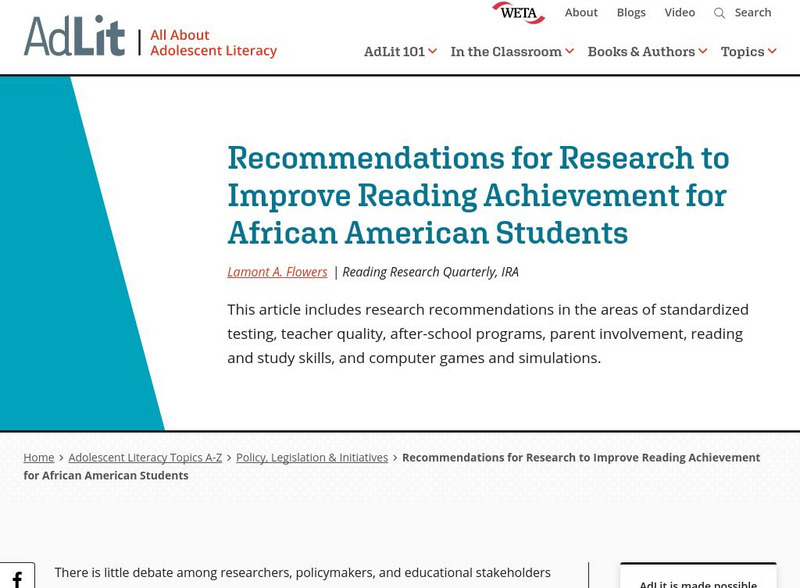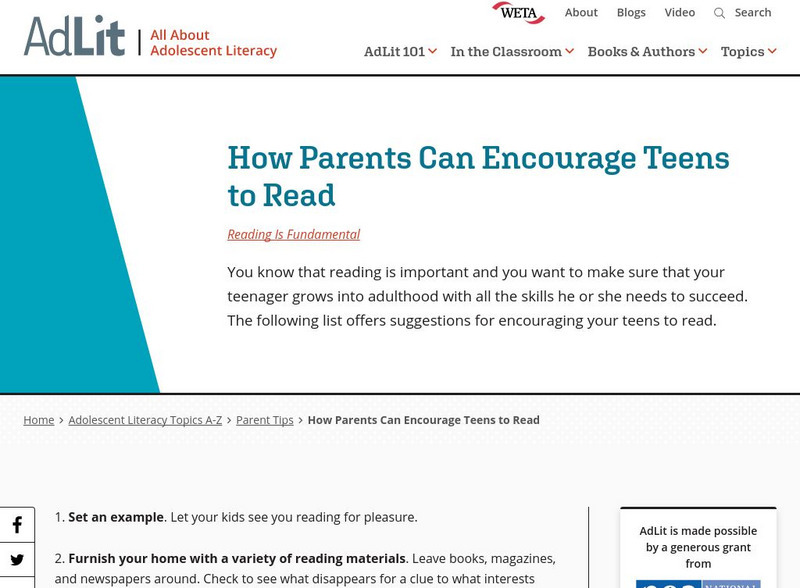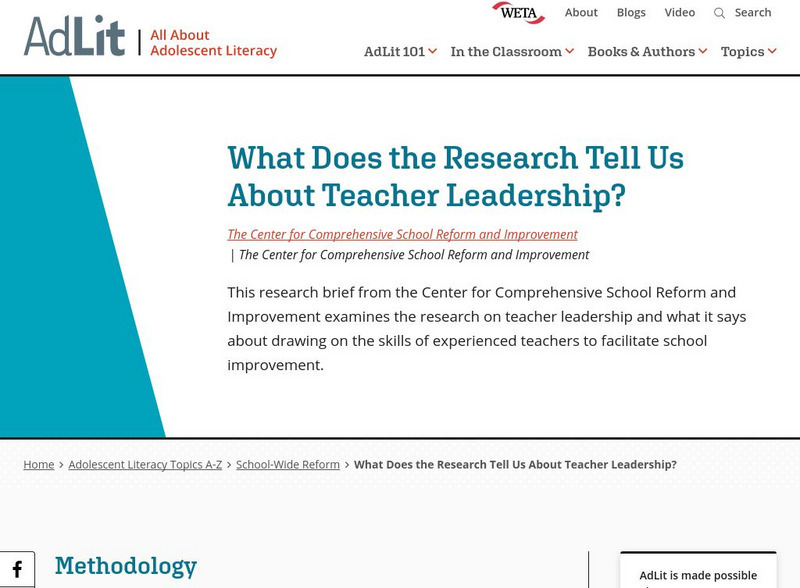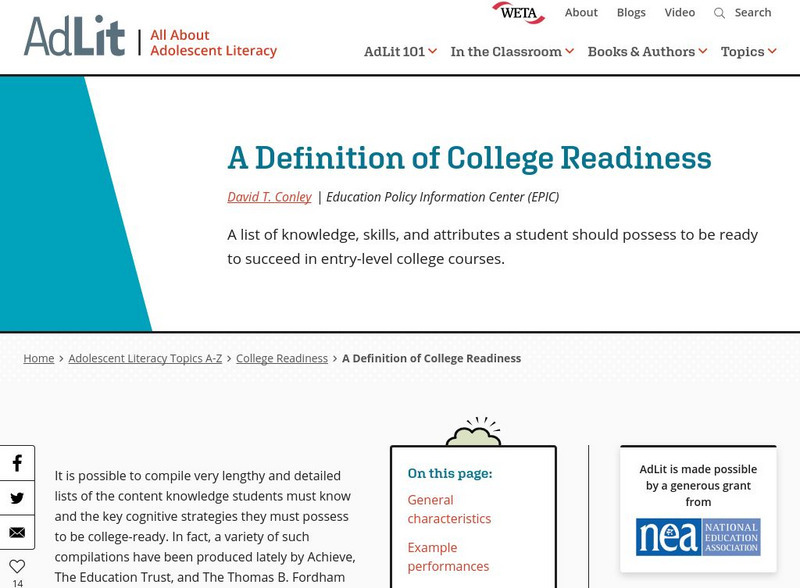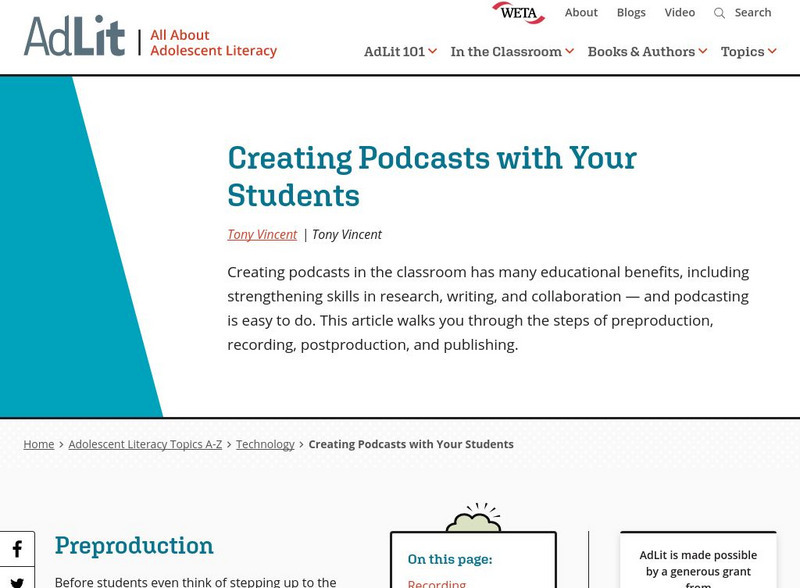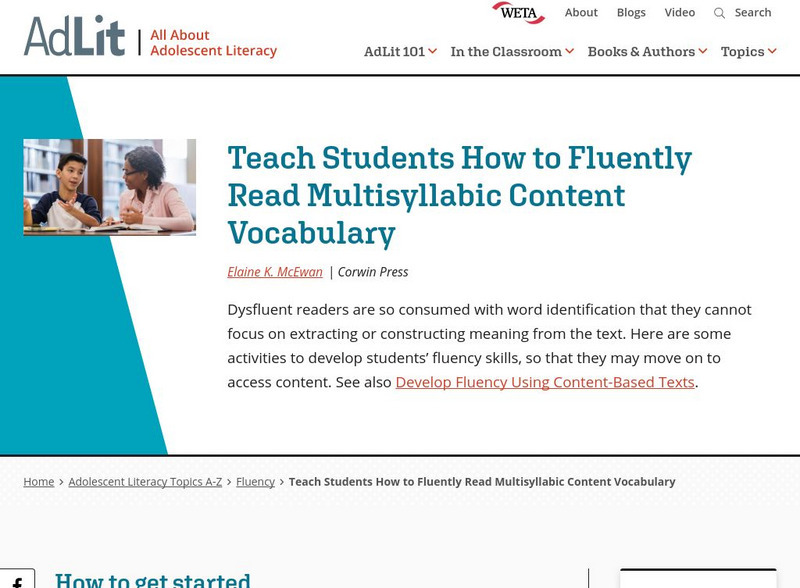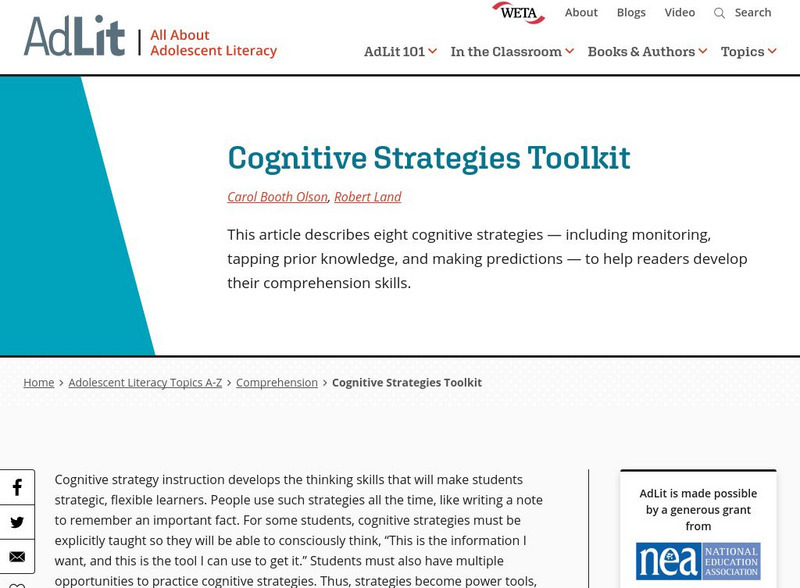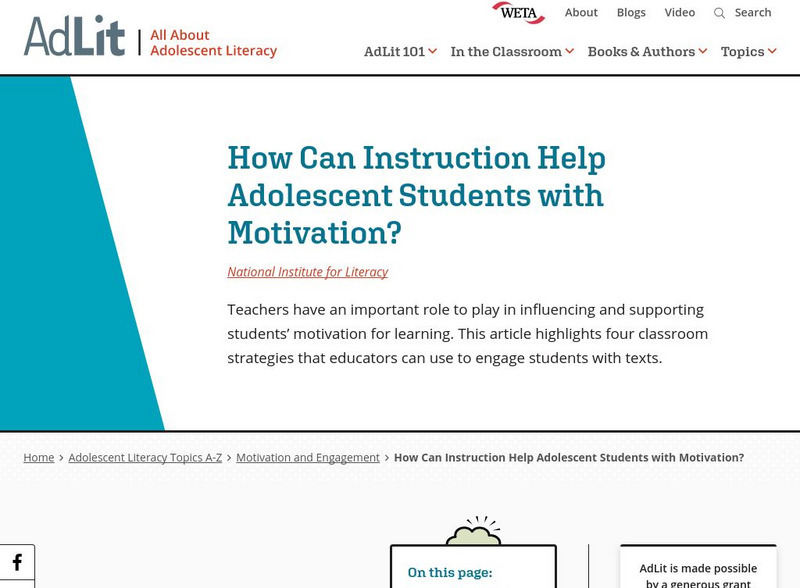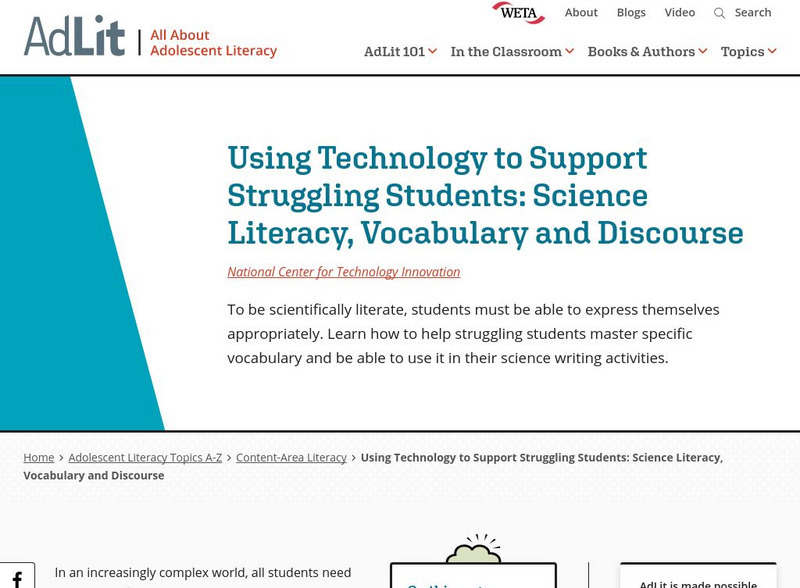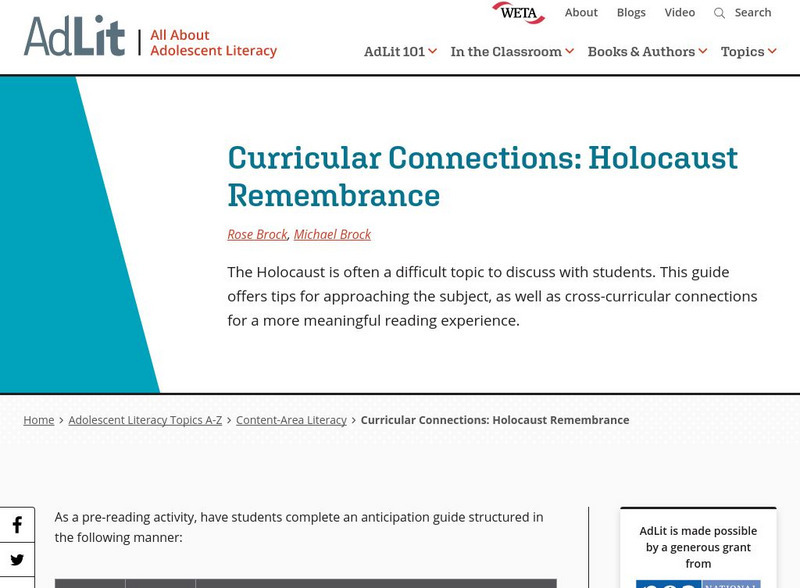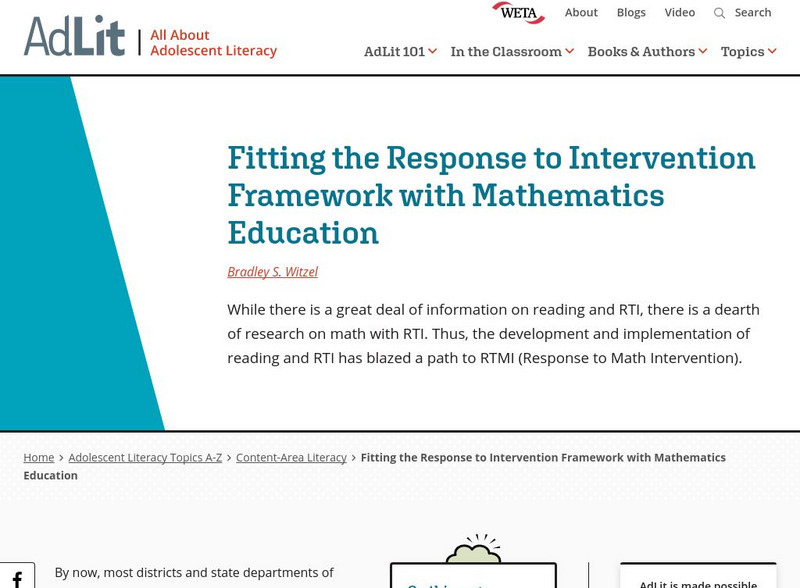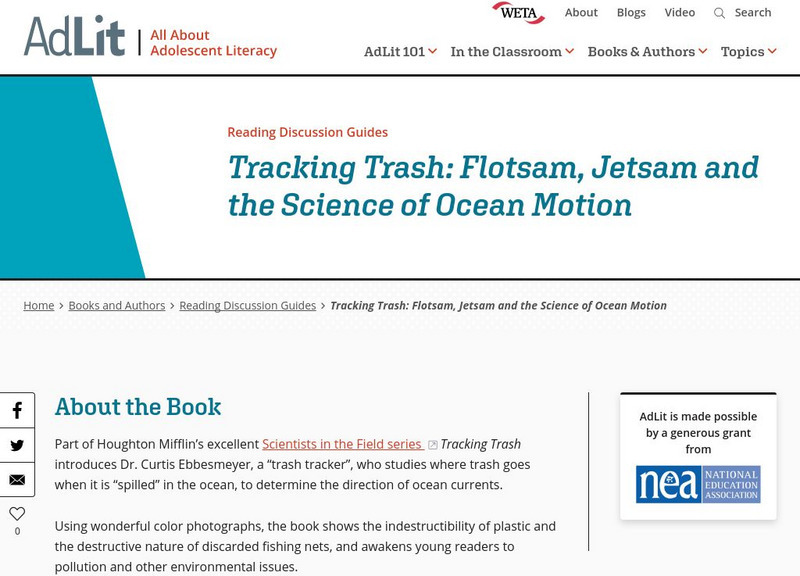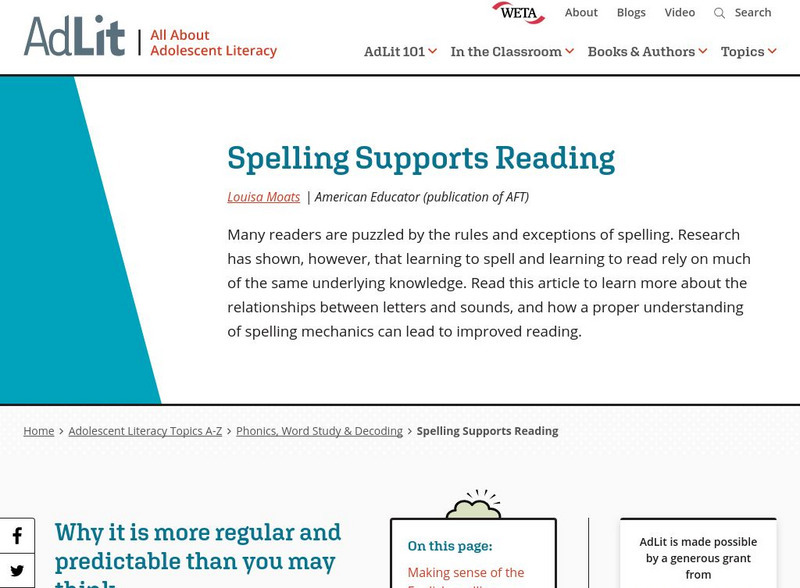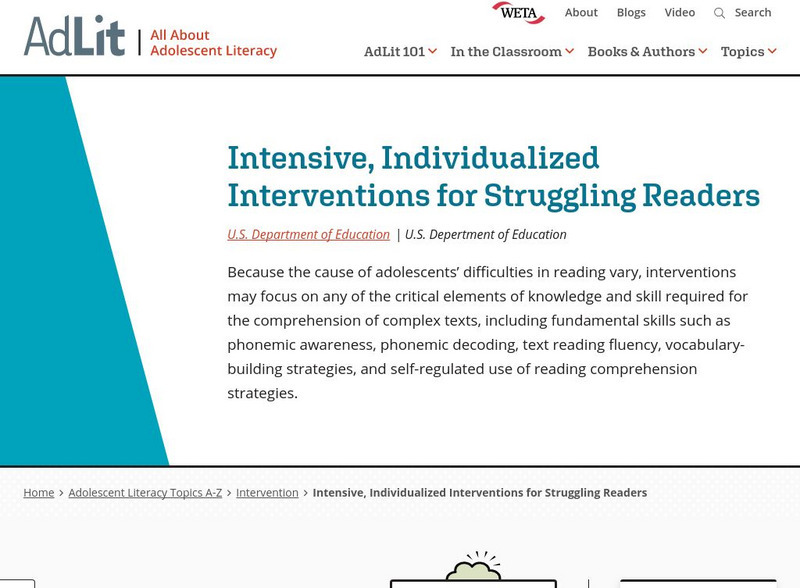Hi, what do you want to do?
AdLit
Ad lit.org: Improve Reading Achievement for African American Students
This article includes research recommendations in the areas of standardized testing, teacher quality, after-school programs, parent involvement, reading and study skills, and computer games and simulations.
AdLit
Ad lit.org: New Electronics: Turn Them on for Learning
Many computer products have built-in accessibility options such as text-to-speech, screen magnification options, or voice input controls. Learn what some of these optional features are and how to integrate them into instruction and...
AdLit
Ad lit.org: A Student's Perspective on Writing
Eli tells us what it is like to have dysgraphia. Regina Richards, a well-known expert on dysgraphia (and Eli's mom), explains how to help children who struggle with the challenges Eli describes. Practical techniques discussed include...
AdLit
Ad lit.org: How Parents Can Encourage Teens to Read
You know that reading is important and you want to make sure that your teenager grows into adulthood with all the skills he or she needs to succeed. The following list offers suggestions for encouraging your teens to read.
AdLit
Ad lit.org: What Does the Research Tell Us About Teacher Leadership?
This research brief from the Center for Comprehensive School Reform and Improvement examines the research on teacher leadership and what it says about drawing on the skills of experienced teachers to facilitate school improvement.
AdLit
Ad lit.org: A Definition of College Readiness
A list of knowledge, skills, and attributes a student should possess to be ready to succeed in entry-level college courses.
AdLit
Ad lit.org: An Introduction to Tech Prep
Tech Prep is a planned sequence of study in a technical field that begins as early as 9th grade and extends through at least two years of postsecondary education or an apprenticeship program. Tech Prep programs culminate in students...
AdLit
Ad lit.org: Creating Podcasts With Your Students
Creating podcasts in the classroom has many educational benefits, including strengthening skills in research, writing, and collaboration - and podcasting is easy to do. This article walks you through the steps of preproduction,...
AdLit
Ad lit.org: Extended Writing to Learn Strategies
Writing enables students to process, organize, formulate, and extend their thinking about what they have been learning. In addition, teachers can also assign writing to help students evaluate what they know and understand about a topic....
AdLit
Ad lit.org: Help Students Generate Ideas Through Prewriting
Learn how to model a range of prewriting techniques and introduce several mnemonics to help students organize their writing.
AdLit
Ad lit.org: Teach Students How to Fluently Read Multisyllabic Content Vocabulary
Dysfluent readers are so consumed with word identification that they cannot focus on extracting or constructing meaning from the text. Here are some activities to develop students' fluency skills, so that they may move on to access content.
AdLit
Ad lit.org: What Schools and Students Can Do to Foster College Readiness
If schools and students understand college readiness in a more comprehensive way, they can do more to develop the full range of capabilities and skills needed to succeed in college. Click on Classroom Strategies on the left of the page...
AdLit
Ad lit.org: Cognitive Strategies Toolkit
This article describes eight cognitive strategies - including monitoring, tapping prior knowledge, and making predictions - to help readers develop their comprehension skills.
AdLit
Ad lit.org: How Can Instruction Help Adolescent Students With Motivation?
Teachers have an important role to play in influencing and supporting students' motivation for learning. This article highlights four classroom strategies that educators can use to engage students with texts.
AdLit
Ad lit.org: Using Technology to Support Struggling Students: Vocabulary
To be scientifically literate, students must be able to express themselves appropriately. Learn how to help struggling students master specific vocabulary and be able to use it in their science writing activities.
AdLit
Ad lit.org: Curricular Connections: Holocaust Remembrance
The Holocaust is often a difficult topic to discuss with students. This guide offers tips for approaching the subject, as well as cross-curricular connections for a more meaningful reading experience.
AdLit
Ad lit.org: Fitting Response to Intervention Framework to Mathematics Education
While there is a great deal of information on reading and RTI, there is a dearth of research on math with RTI. Thus, the development and implementation of reading and RTI has blazed a path to RTMI (Response to Math Intervention).
AdLit
Ad lit.org: Guide: Tracking Trash: Flotsam, Jetsam and the Science of Ocean Motion
Part of Houghton Mifflin's excellent Scientists in the Field series Tracking Trash introduces Dr. Curtis Ebbesmeyer, a "trash tracker", who studies where trash goes when it is "spilled" in the ocean, to determine the direction of ocean...
AdLit
Ad lit.org: Spelling Supports Reading
Many readers are puzzled by the rules and exceptions of spelling. Research has shown, however, that learning to spell and learning to read rely on much of the same underlying knowledge. Read this article to learn more about the...
AdLit
Ad lit.org: Direct, Explicit Comprehension Strategy Instruction
Comprehension strategies are routines and procedures that readers use to help them make sense of texts. Struggling adolescent readers need direct, explicit instruction in comprehension strategies to improve their reading comprehension.
AdLit
Ad lit.org: Intensive, Individualized Interventions for Struggling Readers
Because the cause of adolescents' difficulties in reading vary, interventions may focus on any of the critical elements of knowledge and skill required for the comprehension of complex texts, including fundamental skills such as phonemic...
AdLit
Ad lit.org: Expect Students to Activate, Connect and Summarize Daily
The activate, connect, and summarize daily routine can help struggling adolescent readers acquire new content. It consists of asking students to activate (what did we learn yesterday?), connect (draw a connection between your life and...
AdLit
Ad lit.org: Classroom Strategies: Reciprocal Teaching
Reciprocal Teaching is a strategy that asks students and teachers to share the role of teacher by allowing both to lead the discussion about a given reading. Reciprocal Teaching involves four strategies that guide the discussion:...
AdLit
Ad lit.org: Multiple Texts: Multiple Opportunities for Teaching and Learning
Engaging all students in a themed study or unit is a challenge that teachers can resolve by using materials that match students' independent or instructional reading levels (Robb 1994, 2000). When students face textbooks that are above...





